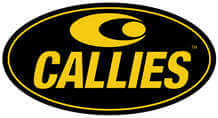
MS Access As A Dev Tool
Access continues to be a highly efficient tool for business database development.
The Best Microsoft Access Database Solutions owner, consultant, and principal programmer is Alison Balter - a recognized expert Microsoft Access consultant. Alison is the author of 15 Microsoft Access training books and videos. She is a frequent guest speaker at MS Access conferences and has developed hundreds of applications for businesses of all types.
We know your business data is important; we listen to your concerns, ask questions, and gather information from all stakeholders. We discuss your needs and requirements for your database. We find out what you want, why you need various features so we can obtain as much information as possible. Once we have the information we need, we work with you to design the proper database architecture, plus the dashboards, the questions (queries), forms, and reports you need for an excellent database system.

We also create websites designed for speed to display your data accurately, using ASP.NET technology. Fast, secure, and robust, our ASP.NET websites and web applications give you a true business tool for finding and displaying information dynamically on the web.






Access continues to be a highly efficient tool for business database development.

How to create a Microsoft Access application with some unique tips and tricks.

Your Access developer near me has some great info for you about using Access efficiently.
Call MS Access Solutions at (323) 285-0939 For Complimentary Consultation
Option Explicit
Option Explicit is a statement that you can include in the General Declarations section of any module, including the Class module of a form, or report. When you use Option Explicit, you must declare all variables in that module before you use them; otherwise, an error saying that a variable is undefined will occur when you compile the module. If Access encounters an undeclared variable when it compiles a module without Option Explicit, VBA will simply treat it as a new variable and continue without warning. At first glance, you might think that, because Option Explicit can cause compiler errors that would otherwise not occur, it might be better to avoid the use of this option. However, just the opposite is true. You should use Option Explicit in every module, without exception. For example, look at the following code: intAmount = 2 intTotal = intAmont * 2Clearly, the intent of this code is to multiply the value contained in the variable intAmount, in this case 2, by 2. Notice, however, that the variable name is misspelled on the second line. If you have not set Option Explicit, VBA views intAmont as a new variable and simply continues its processing. The variable intTotal will be set to 0 instead of 4, and no error indication will be given at all. You can totally avoid this kind of result by using Option Explicit.
TIP
In earlier versions of Access, you had the option of globally instructing Access to insert the Option Explicit statement in all new modules. In Access 2007, the default setting is to insert the Option Explicit statement in all new modules. To review this setting in Access 2007, with the VBE active, choose Tools, Options. Under the Editor tab, click Require Variable Declaration (see Figure 8.4). It's important that you place the Option Explicit statement in all your modules, so make sure this option is set to True. Option Explicit will save you hours of debugging and prevent your cell phone from ringing after you distribute your application to your users.In addition to a General Declarations section and user-defined procedures, forms, and reports, Class modules also contain event procedures that are associated with a particular object on a form. Notice in Figure 8.5 that the Object drop-down list says cmdHello. This is the name of the object whose event routines you are viewing. The drop-down list on the right shows all the events that you can code for a command button; each of these events creates a separate event routine. You will have the opportunity to write many event routines as you read through this book.
Creating Event Procedures
Access automatically creates event procedures when you write event code for an object. For example, Access automatically creates the routine Private Sub cmdHello_Click when you place code in the Click event of the cmdHello command button, shown in Figure 8.5. To get to the event code of an object, follow these steps:1. Click on the object in Design view and click the Property Sheet button on the toolbar, or right-click on the object and choose Properties from the context-sensitive menu.
2. Click on the Event properties tab. 3. Select the event for which you want to write code (for example, the On Click event). 4. Select [Event Procedure] from the drop-down list. 5. Click on the ellipsis button, which places you in the VBE within the event code for that object. You are now ready to write code that will execute when that event occurs for the selected object.This material originally appeared in Alison Balter's book Mastering Microsoft Office Access 2007 Development. Reprinted here by author's permission.
When you need a Microsoft Access programmer for your Huntington West VA business, call MS Access Solutions at (323) 285-0939. We have over 25 years experience in Microsoft Access programmer solutions. We create Access database applications for all sectors, consisting of hospitals, government agencies, the U.S. military, universities, agriculture, workers services, and insurance provider. We can take care of the most advanced as well as complicated Access and also SQL Server database programming for your business as well as smaller projects, like fixing damaged Access database forms, MS Access reports, Access macros, and VBA code.
More about our Access programmer services: Microsoft Access Programmer

